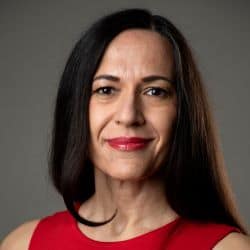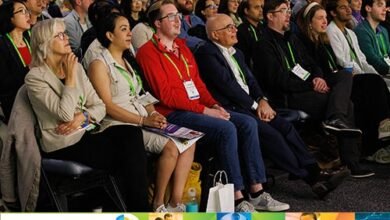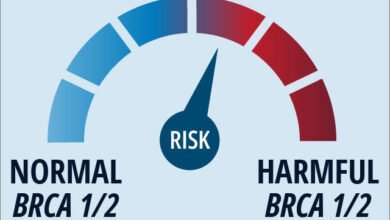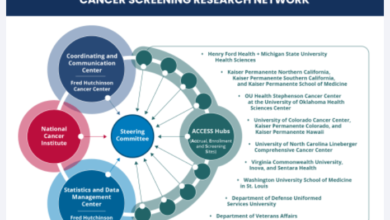Women in Cancer Research: 25 Years of Progress

In the early 1980s, the idea was first raised to the American Association for Cancer Research (AACR) Board of Directors to establish a constituency group for women working in the field of cancer research—a group committed to supporting the professional development of women and combating the challenges faced by women scientists.
At the time, only a quarter of U.S. medical school graduates and around 17% of the biomedical research workforce were women. Women comprised around 26% of the full-time faculty at universities, and of those, a mere 11% were tenured professors. Only two women had ever won the Nobel Prize in Physiology or Medicine, and only three had won the Nobel Prize in Chemistry. AACR had elected three women presidents—the first only 20 years prior, in 1961—and around 14% of its members were women.
The professional group Women in Cancer Research (WICR) was finally formed in 1988 and operated independently from but in close collaboration with AACR for its first decade. In partnership with AACR, WICR established a Directory of Members to facilitate communication and collaboration among women scientists; hosted several seminars, lectures, and workshops to discuss advancement opportunities for women in the field; and sponsored Student Travel Awards and networking receptions for AACR meetings.
In 1998, WICR was formally incorporated into the AACR as a constituency group, and its impact on the field has continued to grow. Currently, AACR has more than 25,000 women members, representing 44.6% of its total membership. Eight of the 15 members of the AACR Board of Directors; three of the last six AACR Presidents; the current AACR President-Elect, Patricia M. LoRusso, DO, PhD (hc), FAACR; and the 2024-2025 AACR President-Elect, Lillian L. Siu, MD, FAACR; are women. Further, during this year’s AACR Annual Meeting, more than 3,000 women will present meritorious posters.
“WICR has become a home for women scientists to network, discuss the challenges that continue to exist in the workplace, and learn how to advance in their careers,” said Margaret Foti, PhD, MD (hc), chief executive officer of the AACR, during the celebration of WICR’s 20th anniversary. “It plays a critical role in the professional development of women in cancer science in medicine.”
As WICR gears up to celebrate a quarter century of supporting women scientists, providing critical mentorship and funding opportunities, and advocating for equality in cancer research, we spoke with two prominent members of the WICR Council—the governing board of WICR—to learn how the group has contributed to the progress of women in the field over the past 25 years.
Beverly D. Lyn-Cook, PhD: WICR Chairperson
Position: Senior research biologist at the U.S. Food and Drug Administration (FDA) National Center for Toxicological Research
AACR Member Since: 1991
Favorite WICR Activity: The Mentorship Breakfast at AACR Annual Meeting: “You have an opportunity to mentor women at all levels—undergraduates, graduates, postdocs, and young budding assistant professors seeking guidance on advancement in universities, industry, and the government.”
Serving as the WICR Chairperson during the celebration of its 25th anniversary brings back many memories, since I was present during its development. WICR was formed from the need for a voice at AACR to advocate for the development and advancement of women cancer researchers. At that time, very few women held leadership roles, chaired scientific sessions, gave major presentations at national meetings, or received major scientific awards given by AACR.
Since then, women have achieved great representation in various AACR leadership roles, including several presidents, members of the Board of Directors, and chairs of major scientific meetings. I have seen more young women reach professor status at universities and receive R01 grants in cancer research, serving as strong advocates for cancer research and survivorship.
I have watched this Council help foster these changes, working successfully with all administrations of the AACR as an advocate for advancing women in all levels of their careers. Although we have made great accomplishments, there remains the need for WICR to continue supporting the development of women, particularly those from diverse backgrounds. Fortunately, AACR leadership continues to be a strong advocate for the advancement of women in cancer research.
Sheila K. Singh, MD, PhD: Past WICR Chairperson

Position: Pediatric neurosurgeon at McMaster Children’s Hospital, professor of surgery and biochemistry and biomedical sciences and division head of Neurosurgery at Hamilton Health Sciences, and director of the Centre for Discovery in Cancer Research and Senior Canada Research Chair in Human Cancer Stem Cell Biology at McMaster University Medical Center in Hamilton, Ontario, Canada
AACR Member Since: 2015
Favorite WICR Activity: The Women and Power Workshop, held at the AACR Annual Meeting: “I love the huge demand and enthusiasm young scientists have for seeking this type of community.” And a bonus activity: “I also love attending the reception for the recipients of many of the AACR Scientific Achievement Awards, meeting these promising young scientists, and sharing career stories with them.”
Serving on the WICR Council has made me more aware and more proud of the amazing, distinguished women who have been key contributors to cancer research and clinical practice, with Dr. Edith Mitchell as a prime example. The story of her glorious career and life served to inspire me and, I think, all of AACR. We need these shining examples to give us something to strive for.
I also became very aware of the ongoing disparities and challenges women face in ascending to the highest level of institutional directorship; there are far fewer female leaders in cancer research in roles such as cancer center or institute directors, university deans, and department chairs. There are many complex reasons underlying this trend, including the challenges of childcare management as an early career researcher and the systemic sexism embedded in many institutions.
Women are now well represented in various fields of science at the trainee and early assistant professor level, but they’re not yet well represented at the full professor level. At any given time, around half of the researchers in my lab are amazing female scientists; my goal is to see them promoted throughout their career to the highest level of leadership.
Get Involved
WICR welcomes all AACR members, regardless of gender, who support the recognition, career development, and advancement of women in cancer research. Women are automatically granted membership to WICR upon joining the AACR. For more information about becoming a WICR member, visit their membership page.
Existing members of WICR can join one of the four WICR committees that plan, organize, and oversee various WICR initiatives, such as their scholarship awards program and their numerous events at the AACR Annual Meeting.
Accordingly, WICR will honor their 25th anniversary through a number of events at the AACR Annual Meeting 2024, which will be held April 5-10 in San Diego. Highlights include the WICR 25th Anniversary Celebration Program and Networking Reception, the AACR-WICR Charlotte Friend Lecture, a Women and Power Workshop (sponsored by the Victoria’s Secret Global Fund for Women’s Cancers, in partnership with Pelotonia), and a meet-and-greet for WICR members and leadership.
Additionally, WICR is pleased to recognize early-career investigators who are recipients of WICR Scholar awards. In celebration of the WICR 25th anniversary, 25 WICR Scholars have been funded for participation in this year’s AACR Annual Meeting.
For more information on these events and other Annual Meeting 2024 programming, keep an eye on the WICR events page, where details will be updated as they become available.
Source link
#Women #Cancer #Research #Years #Progress



